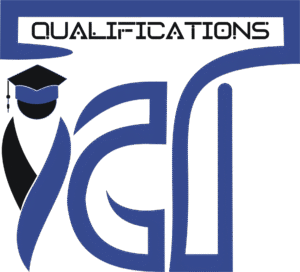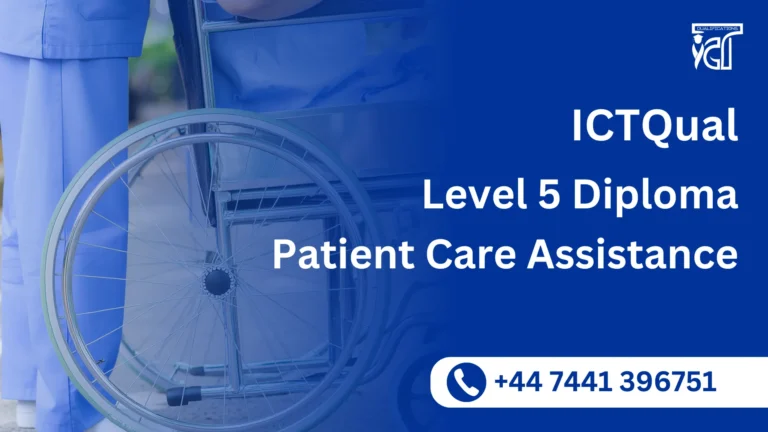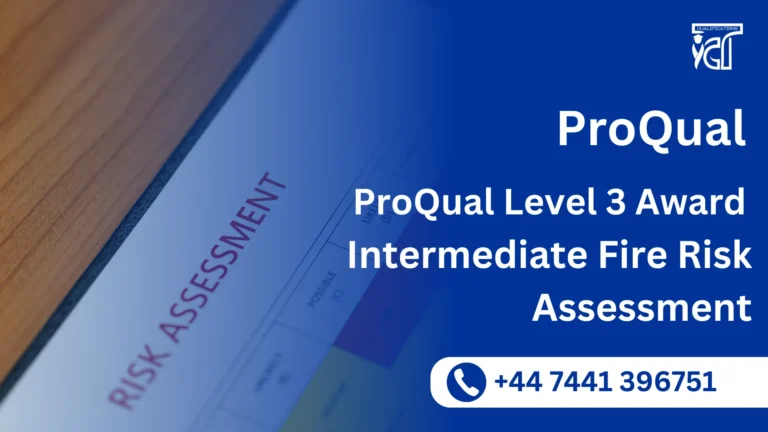ProQual Level 4 Certificate in Advanced Healthcare and Social Care Support Skills
Elevate Your Career in Healthcare and Social Care


Course Level
Level 4
Course Type
Ofqual Regulated
Awarding Body
ProQual
Duration
4 to 6 Months
Study Mood
Online
Assessment
Assignments Based
Course Overview
What is this course
The ProQual Level 4 Certificate in Advanced Healthcare and Social Care Support Skills is designed for professionals who want to elevate their expertise and step confidently into senior roles within the health and social care sector. This Level 4 Advanced Healthcare and Social Care Support Skills Certificate equips learners with the practical knowledge, leadership abilities, and advanced care techniques needed to manage complex care situations and deliver high-quality, person-centred support.
Through this course, you will develop essential skills in communication, safeguarding, risk assessment, and team management. The ProQual Level 4 health and social care support skills certificate also prepares you to guide junior staff, make informed decisions, and provide compassionate care to service users with diverse needs.
Whether you are a healthcare support worker, care supervisor, or social care professional, this qualification enhances your career prospects and sets you apart in competitive healthcare environments. From hospitals and community care settings to residential and rehabilitation centres, the ProQual Advanced Healthcare and Social Care Support Skills Level 4 Certificate opens doors to senior positions and professional growth.
If you are looking to strengthen your confidence, improve your practical competence, and achieve a recognised Level 4 qualification, this course offers the perfect pathway for career advancement and long-term success.
Course Content
Detailed Curriculum Structure
To achieve the ProQual Level 4 Certificate in Advanced Healthcare and Social Care Support Skills;
Candidates must achieve a minimum of 20 credits:
• a minimum of 15 credits from Optional Group A,
• the remaining credits can be from any combination of units from Optional Group A or Optional Group B
Who Should Attend
Target Audience and Participants
This course is ideal for professionals who want to advance their careers in the health and social care sector. It is perfect for:
- Healthcare support workers aiming for senior roles or leadership positions
- Social care professionals seeking to enhance their advanced care and management skills
- Care supervisors, team leaders, and aspiring managers in healthcare and social care settings
- Individuals wanting to strengthen their person-centred care, communication, and risk assessment abilities
- Professionals looking for a recognised Level 4 certificate to improve career prospects in hospitals, residential care, community care, or rehabilitation centres
- Anyone passionate about delivering high-quality, professional, and compassionate care to diverse service users
By enrolling in this ProQual Advanced Healthcare and Social Care Support Skills Level 4 Certificate, learners gain industry-recognised skills, practical expertise, and the confidence needed to excel in senior healthcare and social care roles.
Career & Learning Benefits
Skills, Knowledge & Opportunities You Will Earn
Enrolling in the ProQual Level 4 Certificate in Advanced Healthcare and Social Care Support Skills provides numerous advantages for professionals looking to advance in the health and social care sector. Key benefits include:
- Career Advancement: Gain the knowledge and skills required for senior healthcare support roles, care supervision, and leadership positions.
- Professional Recognition: Achieve a nationally recognised Level 4 certificate that enhances credibility with employers.
- Advanced Skills: Develop expertise in person-centred care, communication, safeguarding, risk assessment, and team management to excel in complex care environments.
- Higher Employability: Stand out in competitive healthcare and social care job markets with a qualification that demonstrates advanced competence.
- Diverse Work Opportunities: Open pathways in hospitals, residential care homes, community care settings, rehabilitation centres, and private healthcare organisations.
- Confidence and Competence: Strengthen your decision-making, problem-solving, and leadership skills to provide safe, effective, and compassionate care.
- Long-Term Growth: Prepare for higher-level qualifications or specialised healthcare and social care roles, ensuring continued professional development.
The ProQual Advanced Healthcare and Social Care Support Skills Level 4 Certificate equips learners with practical experience and professional knowledge, helping them thrive in senior roles and make a real impact in the healthcare sector.
Need More Information?
Frequently Asked Questions Explained
Enrollment Criteria
Minimum Eligibility Criteria for Enrollment
Lock In Your Spot
Get in Touch
+44 2035 764371
+44 7441 396751
info@ictqual.co.uk
www.inspirecollege.co.uk
Follow Us
Qualification Process
Qualification Process for the ProQual Level 4 Certificate in Advanced Healthcare and Social Care Support Skills
- Self-Assessment:
Begin by evaluating your eligibility to ensure you meet the qualification requirements, including work experience, knowledge, and language proficiency. - Registration:
Complete your registration by submitting the required documents, including a scanned copy of a valid ID, and paying the registration fee. - Induction:
An assessor will conduct an induction to confirm your eligibility for the course and explain the evidence requirements. If you do not meet the criteria, your registration will be canceled, and the fee will be refunded. - Assignmnets & Evidence Submission:
Provide all assignmnets and the necessary evidence based on the assessment criteria outlined in the course. If you are unsure of the required evidence, consult with the assessor for guidance on the type and nature of evidence needed. - Feedback and Revision:
The assessor will review your submitted evidence and provide feedback. Evidence that meets the criteria will be marked as “Criteria Met,” while any gaps will be identified. You will be asked to revise and resubmit if needed. - Competence Evidence:
Submit final evidence demonstrating that all learning outcomes have been met. This evidence will be marked as “Criteria Met” by the assessor once it is satisfactory. - Internal Quality Assurance (IQA):
The Internal Quality Assurance Verifier (IQA) will review your evidence to ensure consistency, quality, and compliance with standards. - External Verification:
The IQA will submit your portfolio to ProQual’s External Quality Assurance Verifiers (EQA) for final confirmation. The EQA may contact you directly to verify the authenticity of your evidence. - Certification:
Upon successful completion of all checks, ProQual will issue your official certificate, confirming that you have attained the ProQual Level 3 Diploma in Healthcare and Social Care Support Skills .









